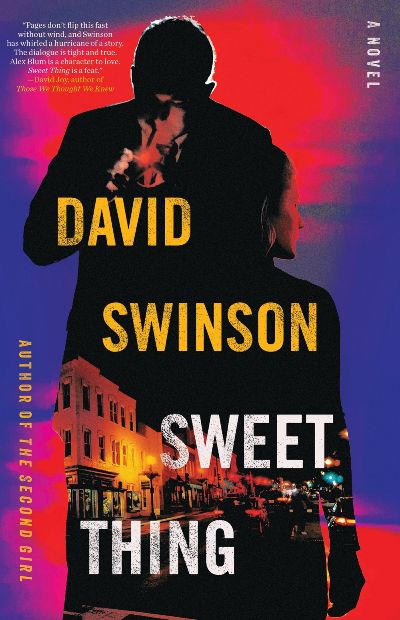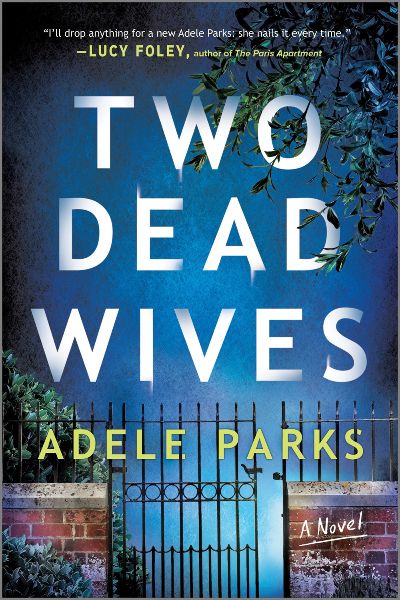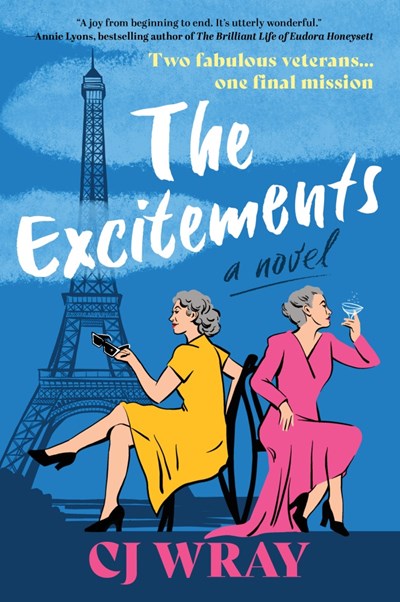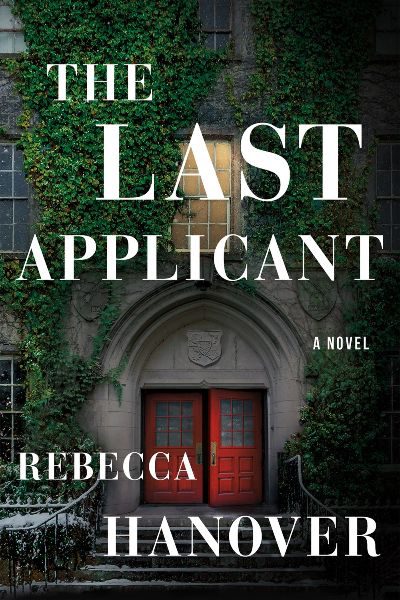Connelly’s stellar effort, which brings together defense attorney Mickey Haller, the Lincoln Lawyer; and retired LAPD Detective Harry Bosch, explores a case of an incarcerated woman claiming innocence. She was coerced into a no-contest plea of a lesser sentence of manslaughter by her sleazy attorney, who told her if she didn’t agree to this deal, she would face life in prison for killing her sheriff’s-deputy husband. Every attempt by Haller and Bosch to find answers is met with either disdain or tainted evidence and testimonies. Connelly is a master of taking a straightforward case and compellingly revealing the details while throwing in a few twists and turns. Laws are questioned and Bosch and Haller soon determine they are David and this Goliath is too strong for them. Whether you are a fan of the books or the Netflix and Amazon Prime series, this latest entry is another gripping winner from the master of crime fiction, and with the great popularity of the TV series, expect huge interest in this title.
Thrillers
Washington, DC homicide detective Alex Blum is an in-between sort of cop. He’s not jaded, but he’s used to the horror he sees on the job. He knows that, unsexy as it is, procedure gets things done, although he can cut corners when it suits. But after he’s called to a murder scene and finds that the dead man, Chris Doyle, knew one of Blum’s informants, Artie Holland, Blum throws procedure and even personal beliefs to the wind. The informant is missing—in his world as a drug dealer, probably dead, but we’ll see—but his girlfriend, Celeste, is still in his home. She and Blum take up a dangerous relationship, one that must be hidden from both his job and Artie’s cohort, who wouldn’t like a cop taking Artie’s place. Swinson’s dialog is a highlight here. The characters, from the medical examiner and cops to desperate Celeste and the dancers at a topless bar—one of Artie’s haunts—all talk us through seedy and horrible events while the rumored Y2K disaster looms and Blum edges further toward his own destruction. Swinson’s unusual ending tops the surprises in this rough, realistic noir.
This sequel to Woman Last Seen (2022) publishes the day after Christmas, but it’s far from your traditional holiday read. It does, however, provide more than ample entertainment for days off and/or fuel for thinking away interminable events. The main thought provoker is: how does a woman manage to be married with kids in one family while also married to someone else? How are the two husbands and the kids supposed to feel now that Kylie, also known as Kai and Leigh, the bigamist whom they thought they hated, has gone missing? And what’s the second husband to do, accused as he is of Leigh’s murder, when he knows he didn’t do it and nobody even knows if she’s actually dead? Leave this one up to the kids, who are sick of the media firestorm around them, not to mention tired of their mother’s best friend who has moved in just a little too quickly and whom they know visits Dad’s room at night. Philosophical questions quickly give way to a thrilling investigation and final pages that will keep readers on edge and rooting for justice.
Clear your calendar, shut off all the devices, and order in some take-out. This lovely, witty story about the two, nearly 100-year-old, Wilson sisters and their many escapades—they call them “excitements”—is that captivating. And it succeeds without an ounce of the treacly cuteness so often encountered in crime fiction featuring female nonagenarians. The sisters are well-known as World War II veterans—Josephine served in the Women’s Royal Navy and Penny in the First Aid Nursing Yeomanry—and their wartime efforts seem innocent enough. But the truth is far more complicated, and each woman has a complex history that lives on into the present. As they head off to Paris to receive the Légion d’honneur with their beloved great-nephew, Archie (why can’t he find a nice husband, they wonder?), the story moves between the present and the war years, revealing the double lives of the sisters. While the novel takes several serious turns—even if their motto is toujours gai!, cheerful under all circumstances!—it always returns to its essence: a joyous, uplifting tale that looks forward fearlessly. For readers who enjoyed Mrs. Plansky’s Revenge, Killers of a Certain Age, and The Thursday Murder Club.
This is one wild, suspense-driven tale, equally rich in characterization and plot. Breanna is on a mini-vacation with her new boyfriend, Ty, staying in a beautiful brownstone in Jersey City while touring Manhattan. Ty’s thought of everything, and the long weekend is 95 percent perfect, except for that five percent when Ty won’t stop with the work calls. But when Bree wakes up on their final morning, she can’t find Ty anywhere. What she does discover, strewn in the foyer, is the bloody corpse of a young woman that turns out to be Janelle, who has been missing for days. From here, things really take off, with Bree’s best friend—they’ve been estranged since college—arriving on the scene (she’s a take-charge criminal attorney), while Billie, a super-successful makeup influencer, rallies her thousands of followers into seeking #Justice4Janelle. Garrett does a great job of tracking the racism Bree experiences, from the neighbors’ microaggressions to the stereotypes purported about Ty to the national frenzy that only a white woman’s disappearance could generate (and thus the book’s title). A great cast, a wide-reaching narrative, and a resolution that will leave readers ruminating for days. Can’t wait to introduce this to a book group
Actor and now debut novelist Lindstrom explores the dark side of life in Los Angeles. Winston Greene used to be one of the top actors in the world, but his prestige is gone, along with most gigs. His six-year-old granddaughter arrives in the middle of the night after getting a ride from a stranger; she appears out of sorts, and she’s carrying a stuffed puppy and a thumb drive. The drive contains a ransom video featuring Winston’s daughter, who will die unless he gives her kidnappers all the money from his prestigious career. Going to the police will only put a target on Winston and his granddaughter’s backs. Thankfully, he has some friends who can help, including a former LAPD detective and a stuntman. These characters are all flawed, but that makes the story more engaging than if they were squeaky-clean superheroes. Lindstrom uses his knowledge of Hollywood to deliver a clever and gripping thriller, and he writes like a pro. It is hard to believe this is a debut.
A childhood fall down the stairs, for which she blames her alcoholic mother, caused a head injury that has left Penny Bly a savant with perfect recall of everything that has happened to her since the fall. She’s one of only 75 people in the world with this level of abilities, but it doesn’t feel so special: she’s lonely and rebellious, living in a facility where she’s always being studied. One of her only joys is receiving birthday cards from the father who abandoned her when she was a child, but when her 21st birthday card arrives, it bears a message that sees her leave the home and take a cross country trip to find him, encountering friendship but also terrible danger along the way. Penny is a fascinating character who’s full of extremes: off-the-charts intelligent but completely clueless when it comes to the real world; desperate for love but pushing everyone away; longing for safety but causing mayhem with her single-minded pursuit of a plan-less goal. Get ready for a wild ride and a WHOA ending.
Real life collides with reality television in a mega-rich section of Los Angeles in Goldberg’s latest thriller. Detective Eva Ronin investigates the discovery of bones found in a park outside a private and secure area called Hidden Hills. That cold case soon requires focusing on a current investigation when a reality star is murdered inside her home while her family sleeps nearby. Hooded thieves broke in and ran when the family awoke to the gunshots. The expected security of the community appears nonexistent. Eva knows about the world of Hollywood since her police role has become a TV series, so she’s used to what is factual being played up for entertainment value. But this case seems to defy logic as more deaths occur, and reality means nobody is safe. Goldberg has created a terrific character in Eva Ronin, and he knows how to write a fast-paced thriller mixed with humor and inside jokes with no fluff. Like Michael Connelly, Goldberg also utilizes the Los Angeles landscape effectively.
This novel takes place in the social black hole that sucks in (very) rich New York City parents: admission to the kind of private elementary school that costs the same as college. These institutions usually seem to be named with an eye toward Beatrix Potter characters attending—St. Bernard this, country that. This one’s called Easton but is nevertheless The School to attend. That’s why admissions director Audrey Singer is only surprised by the casual tone of a begging email from a mom who didn’t realize the application pool would be capped. Sarah Price is desperate, devastated, disconsolate, not to mention a little drunk, and fears she has “completely derailed” her son, Eli’s, future. Audrey makes the mistake of allowing an exception to the rules, and that’s all it takes: Sarah now begins to stalk the gatekeeper of her dreams for Eli, with her antics growing ever more unhinged as decision day grows closer. Fans of psychological thrillers and mysteries will lap up the tense moments created by the power imbalance between Audrey and Sarah; emotional ups and downs that stem from the women’s private lives add to the roller coaster effect. As the novel is episodic, cliffhangers will thrill readers at points, and there’s a completely unpredictable ending twist. Pick up this one if you enjoyed Chandler Baker’s Cutting Teeth or Sylvie Perry’s The Hawthorne School.
Lennon, who has always played with a range of genres in his literary fiction (Broken River, Familiar, Mailman) now dips his pen into more commercial waters with the same inventive, adventurous flair. His new thriller, first in a series, revolves around twins (fraternal, not identical) Jane and Lila Pool. Thirty-five-year-old Jane leads a quiet suburban life in upstate New York, working in a dead-end administrative job at the local college, checking on her absent-minded professor father, and trying to parent adolescent Chloe despite the obnoxious interference of her disapproving mother-in-law. But her comfortable, if boring and unsatisfying, existence is turned upside down when she receives an encrypted email in the guise of spam from her long-estranged sibling. Lila has found their mother, who abandoned the girls 20 years ago, and she wants Jane to come with her to track and confront the wayward Anabel, who may or may not be a CIA agent-turned-drug-queen-pin. As the sisters embark on a whirlwind journey that eventually takes them down to Central America, alternating chapters recount the twins’ lonely, isolated childhood and teenage years as they spy on their distant and remote mother, savoring the few moments of kindness she shows them (“the marvelous, elusive feeling of their mother’s attention”), until Anabel’s final disappearance and an unexpected act of violence propel the girls on a traumatic road trip of escalating bad decisions. Along the way, readers discover who the true hard girl is. Mixing elements of a chase novel with an espionage thriller, this is also a touching story of sisterhood and motherhood in all their complications. Despite a muddled climax, Lennon’s well-written mashup of Where’d You Go, Bernadette and Thelma and Louise, but with a happier ending, will appeal to his fans and attract new readers.










